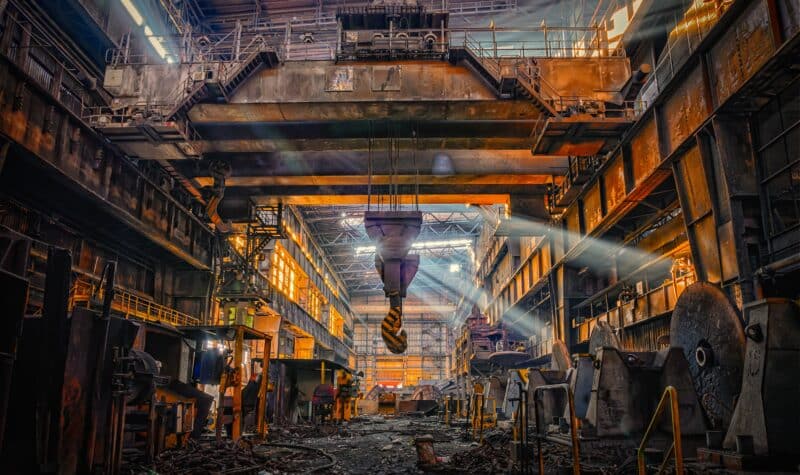2022 was an incredible year of growth, learning and impact. We put our model into practice while shaping and adapting our first two programmes. In this report we aimed to capture the difference we made working with partners across Asia to accelerate steel decarbonisation and also mobilising businesses for the protection and restoration of Europe’s peatlands.
Learn more about both these programmes below, the impact we made and the learnings we take with us into 2023.
Steel decarbonisation in Asia
Our objective was to accelerate steel decarbonisation in Asia by driving policy change via commitments by steel buyers and suppliers, and building the national and regional power of civil society to advocate for the transition
Why focus on steel decarbonisation in Asia?
The Asian steel sector is key to efforts to transition to zero emission steel. 90 per cent of steel is manufactured in just ten countries – with many of the world’s biggest steel producers sitting in Asia. Demand for steel is expected to grow 30 per cent by 2050, with much of this driven by India, Southeast Asia, Africa and the Middle East. Climate Catalyst works to accelerate action on steel decarbonisation in three key geographies
Our key achievements:
India
We have seen the greatest progress in India, thanks to our partners and team there. There has been a dramatic shift in commitments by the Ministry of Steel on green public procurement (GPP) which is a key lever in India and our core focus. This is evidenced by multiple public statements by Ministers in late 2022.
Japan and South Korea
We are also making progress in Japan and the Republic of Korea, building momentum by engaging the private sector, educating investors and by partnering with key actors such as the Japan Climate Leaders Partnership, the Next Group and Solutions For Our Climate.
The Green Steel Hub
We launched the Green Steel Hub at COP27.
A curated resource hub designed to be a guide to anyone interested in learning about steel decarbonisation and a useful source of information, trends, reports and news for those acitvely working to decarbonise this vital industry.
Protecting peatlands in Europe
Our objective was aimed at strengthening government efforts to protect and restore peatlands in Europe
Why focus on protecting peatlands in Europe?
Peatlands are vital ecosystems in the fight against climate change and biodiversity loss. Over 50 per cent of peatland in the EU has been drained. Emissions from degraded peatlands amount to five per cent of Europe’s annual carbon footprint.
We sought to work with partners to increase the EU Nature Restoration Law’s (NRL) current level of ambition in line with the urgency needed to tackle the biodiversity and climate crises, as well as put peatlands on the map of corporate climate action by building a credible business and investor case for peatland protection and restoration. The NRL is a key element of the EU Biodiversity Strategy which calls for binding targets to restore degraded ecosystems and sets overarching targets for restoration measures to be put in place on 20 per cent of the EU’s land and sea areas by 2030, and specific targets for the restoration of peatlands under agricultural use by 2030, 2040, and 2050.
Our key achievements:
Nature Restoration Law
Through our partnership with a coalition of NGOs in Brussels and mobilising business, we managed to have an influence on the ambition of the EU Nature Restoration Law. Our grant to the coalition helped produce deep analysis we could use for targeted advocacy, and allowed the Institute for European Environmental Policy to publish a study on the link between nature restoration and food security in response to strong backlash against the NRL by agriculture lobbies.
Mobilising businesses
Through our activities, we’ve engaged 20+ companies on the need to protect and restore peatlands, how they should integrate this into their transition strategies, and the actions and investments they can take. Through our partnership with the Landscape Finance Lab, we are engaging investors and project developers on how to build effective models for scaling up investment in peatland restoration projects.
Awareness building
We worked with partners to build greater awareness of the role degraded peatland plays in the biodiversity and climate crises. With Greifswald Mire Centre and Eurosite, a communications campaign has been developed to galvanise public support for peatland protection and restoration in Germany. We presented our partners’ peatlands work to new foundations to encourage them to invest in this space, and held two events at COP27 on peatlands, tying the issue into the UNFCCC mitigation and adaptation agenda.
Lessons for 2023 and ahead
What we learned we do well
- Convening diverse stakeholder groups.
- Building power within ecosystems.
- Connecting domestic actors with regional and international processes.
What we learned we to differently
- Consult and convene effectively; to build strong analysis, partnerships and clear objectives.
- Testing and learning to develop national level trust and influence.
- Consistently and clearly articulating our value add.
Explore our work, impact and learnings further through the complete annual report below.

Explore our annual report below
Explore our work and impact in 2022, the lessons we learnt and how we aim to apply these learnings to help catalyse change in 2023.



